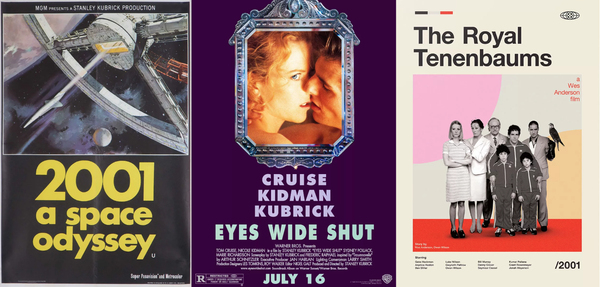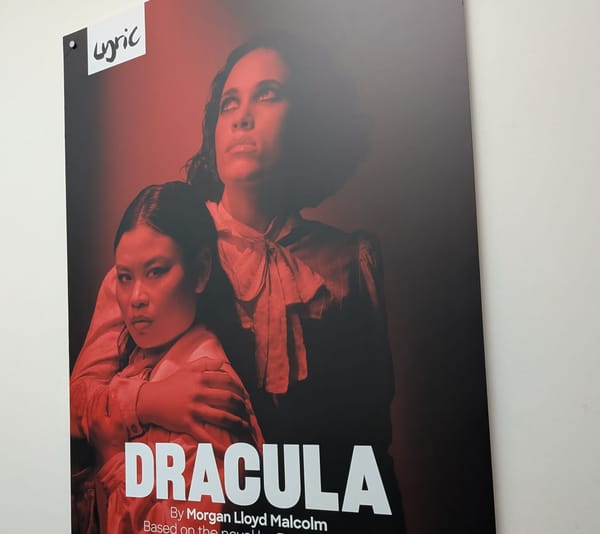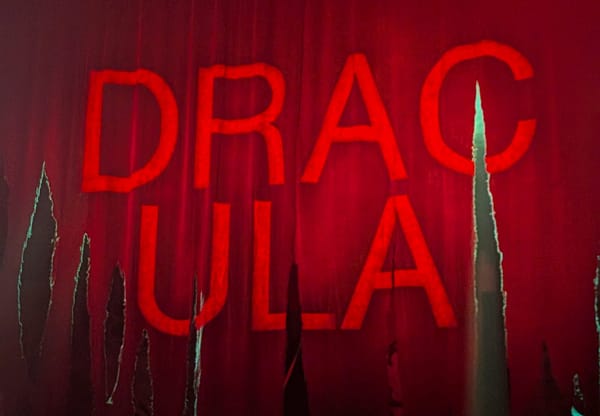Deja Vu* by The Wandering Hearts
* Subtitle: We Have All Been Here Before, so we have.
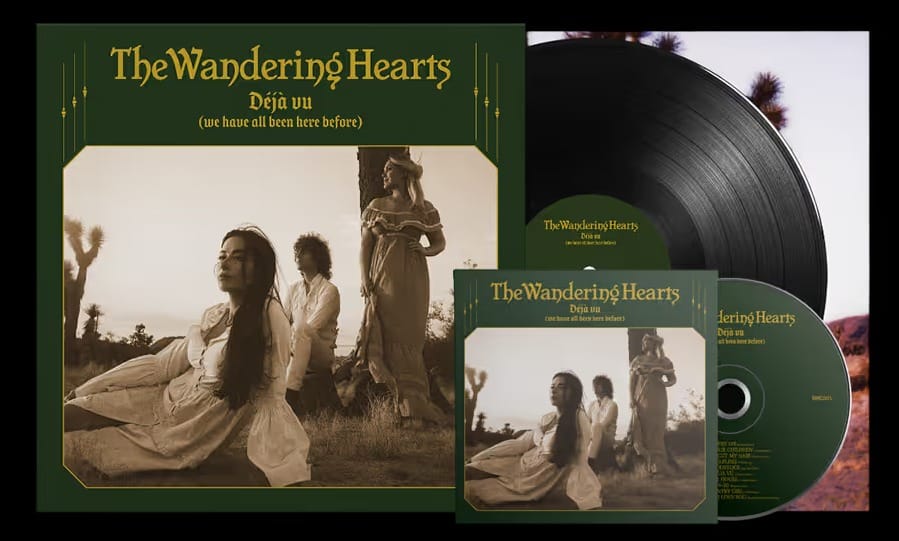
So as you know, Crosby, Stills, Nash & Young (CSNY) were a supergroup who released their second studio album, Deja Vu in March 1970, meaning it was written and recorded right at the fag end of the 60s. It was an instant success, being certified a gold disc after just two weeks. The original was recorded at Wally Heider's on Hyde Street in San Francisco, a studio known also to Lindsey Buckingham and Fleetwood Mac during the making of Rumours. But the members of CSNY all lived in Laurel Canyon at the time, and I think the Canyon is the key to unlocking some of the mystery.
The thing about studios back then, analogue studios, is that their precise blend of equipment and acoustics could really add something to an album. There are stories of musicians booking studios with Neve sound desks because of their je ne sais quoi. I think that is the case today for those people, like these people, The Wandering Hearts, who cleave to the analogue mode. I doubt that equipment has very much impact on the vibe of an album in a purely digital world, more's the pity.
The problem with supergroups is that they are not bands, they are full of too much ego. Graham Nash famously wrote and recorded his songs alone, separately, whipped them out for the others to add backing vocals, and then fucked off back home to finish the mix. Crosby spent most of the time in tears after his girlfriend, Christine Hinton, died in a car accident. This grieving and disharmony among the four is something that actually drew The Wandering Hearts (TWH) closer to the material. And it was the music of their parents too, which is cringe when you are 10 years old but quite endearing when you are 30.
This is one of only a few track-by-track deep dives we have done here at Tennessee Vibes, but I am really enjoying them, and planning more this summer.
Carry On
A solid start very close to the original. The second half is trippy. It's a game of two halves, and it turns out it was originally rooted in two different songs. The Chain, anyone?
Someone has walked out on the relationship, but it feels like a little while ago. He's at the acceptance stage. Sentiments shared in Fleetwood Mac's Go Your Own Way of course, but that song was shouting angry. This one is mellow. Sometimes you wish these guys would show more anger. Perhaps they're so stoned they'll forgive anyone anything.
Carry On was specifically written as the opening track. Graham Nash realised that any record had to have such a brilliant opener that nobody would want to switch off. Novelists and screenwriters know this too: even in the 1970s, you could not guarantee someone would not bin you off in less than three minutes. If your first chapter is important, then the first page, the first paragraph, the first sentence, the first word... everything is more important than what follows.
I prefer the new version of this song. The Wandering Hearts just sound more modern, I'm getting familiar with having the female voice, the female point of view, on these tracks. I was always going to prefer the extra tension and more balanced vibe that comes from having different voices other than four geezers who didn't like each other. Although, as TWH have admitted, they were relieved of the undoubted burden of actually writing these songs. It is more than that though: you get the sense that TWH get on as a unit.
Teach Your Children
Always a naff title but what a tune! What a sentiment that is relevant to our times just as it is relevant to every generation before and after ours. As a war historian (at the moment) and an inadvertent historian of music after watching it mutate over 50 years and more, you have to wonder whether these drug-addled hippies really had all the answers. Neil has grown positively obtuse, making grand self-destructive gestures and proclamations. I'd love to focus on the music but current thinking is not to do only that.
Surely in the case of singer-songwriters, the music as-is does not capture the full story? Rumours only sold as many copies as it did because of the failed relationships of the band members and Deja Vu is similar in that respect. It is difficult to detect acrimony in these tracks, but it was ever-present behind the scenes. Sometimes you wonder why these guys ever got together.
Almost Cut My Hair
For some long-haired layabouts this would have been a big moment, a trip to the barbers. But this time we have a female voice, that of Tara Wilcox, changing the song and making it more important: surely a woman cutting her hair is a less frequent and therefore more special occasion? Anyway she didn't cut it in the end. As you already knew.
In Withnail & I, their dealer has long hair. He says hair is your aerials through which you perceive the world. Withnail was set in the late 60s which gives me licence to draw on it where relevant here.
“I don't advise a haircut, man. All hairdressers are in the employment of the government. Hairs are your aerials. They pick up signals from the cosmos, and transmit them directly into the brain. This is the reason bald-headed men are uptight.”
England is not the land of Deja Vu. But it's the right time, the late 60s. London was still bombed out from the war. California hasn't been bombed out since the Civil War. (Indeed it had hardly been a state for a decade when the Civil War arrived.) How exciting was this music, imported into post-war Britain? Record companies and people like Hendrix were bringing not only new sounds but mental medicine. Mental in all its senses.
Almost cut my hair
It happened just the other day
It was gettin' kinda long
I could-a said, it was in my way
But I didn't and I wonder why
The song is often described as a protest anthem. Long hair as a metaphor or symbol of revolution, of a new generation, Generation X, supplanting those Boomers. I don't know about that. It's not obviously a political song from the lyrics but it is clearly about much more than whether or not to visit the barber. The new version is a little more produced, a little less angry perhaps. But as soon as you make the singer's voice female, a new dimension arrives with it.
Little Feat's Too High To Cut My Hair? Yes, I have to mention this because Lilly Winwood appeared in the video, a stoned non-barber giggling her way through not cutting any hair. And anyway the lyrics indicate that it is Lilly, the barber, who is high, not the customer. This means the meaning is completely different to Almost Cut My Hair, but at least I managed to manage a mention. The final laugh is that she completely removes a man's afro against his instructions. [You need to lay off that shit. Cut this para. Ed.]
To finish this odd and unexpected journey into long hair, and the cutting (or not cutting) of it, I find myself listening just as unexpectedly to the Pearl Charles song Long Hair!
Helpless
A female voice. A town in North Ontario. That's specific! This is a Neil song. He has such a high voice that it has always been suited to female singing. It's beautiful, slow and steady but still builds nicely. So mellow. Sad. Somehow upbeat nevertheless. Chess Whiffin is the main voice this time. Such a beautiful voice. You almost expect Knockin' on Heaven's Door.
Blue, blue windows behind the stars,
Yellow moon on the rise,
Big birds flying across the sky,
Throwing shadows on our eyes.
Leave us
I now realise I will always prefer these new tracks over the originals. This deep dive is not about continually comparing the two records. They are different to each other. The new one does not even seek to replicate the original exactly. But TWH must have been constantly listening to the master copy, talking about it, tweaking and fiddling with it. Anyone who remembers the original will make a comparison. Anyone who does not remember the original will automatically love this as a unique, original and very creative series of songs by a successful British Americana band.
Woodstock
It was Calmer Sounds who told me this was a Joni song. So I was very aware of a Joni song of the same name, but it's not this song. Ha! It sounds completely different. Of course it's not the same song! You're wrong, she said, in her customary withering tone.
I did know of the link from CSNY to Joni via erstwhile boyfriend Graham Nash, an attachment that led to the track Our House, of which more later. But it was Stephen Stills who brought this song to Deja Vu. Such a tangled web. I still couldn't recognise the song. The two versions are so different and this version is different again but in a different way. It's heavy which makes a counterpoint to Helpless. It's certainly not Joni's version and the predominant voice is male, meaning AJ Dean this time.
These geezers, especially Neil Young but many more, including John Fogerty at Glastonbury this year, still talk about Woodstock like it was yesterday. It has a strong hold. Like 80s hair gel. I wonder if it's positive, that hold. I almost think it sounds too good to be true. They have PTSD from the shocking freshness of it which they can never recreate. It overwhelmed them, made them think that hippies really could remake the world. That belief was smashed just a few months later at Altamont, where CSNY also played. Possibly the drug intake affected their perceptions and perspective too.
Could Woodstock really have been as good as they say? Sometimes a thing is great mainly because it was better than expected. Like this version of the song? The Joni version never did much for me, even in my 90s Joni phase. But this one really rocks. Such was its influence and reception that it was recorded four times in 1970 alone by different artists.
This ends side 1. I know because I had to make a short walk to turn over.
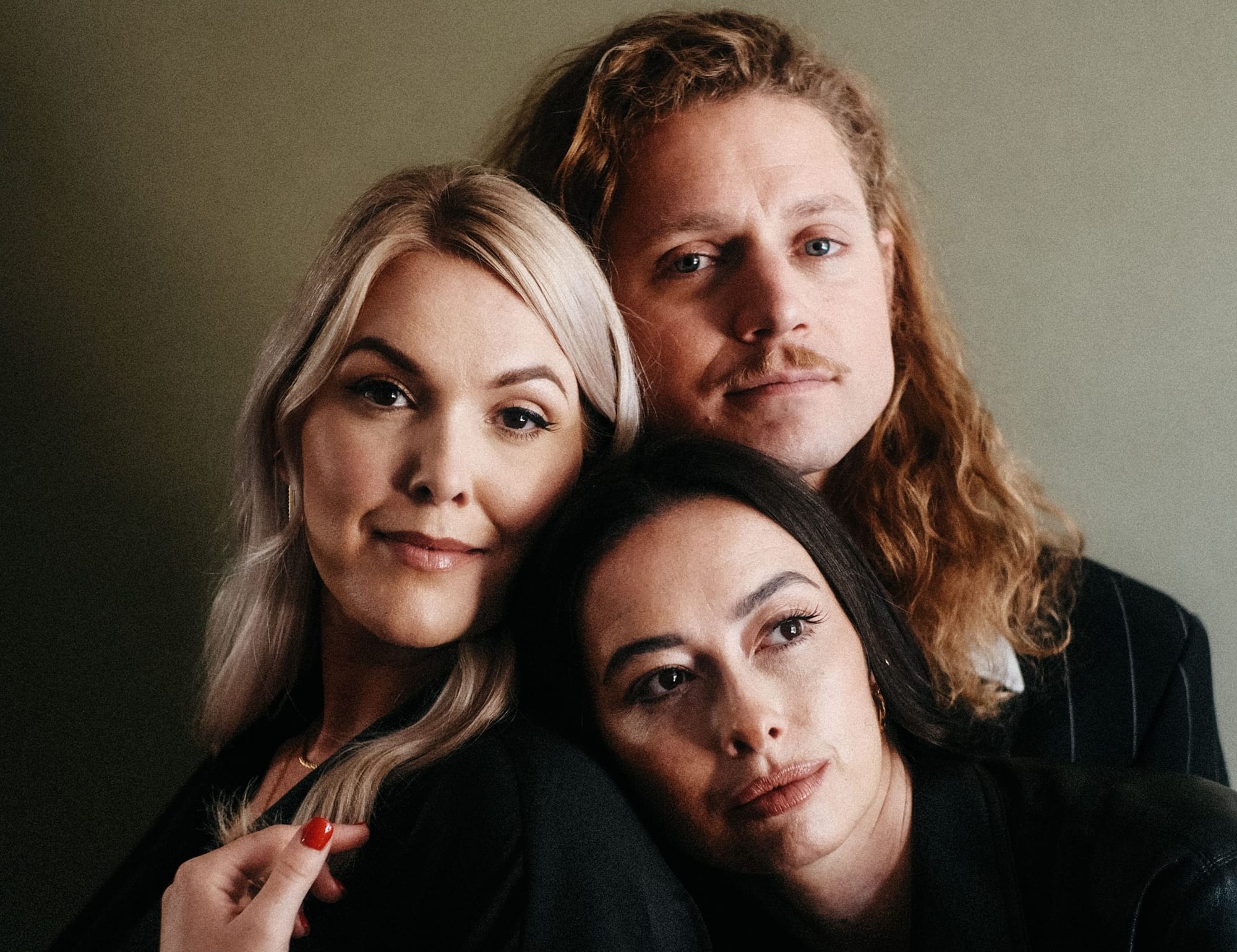
Deja Vu
The title track. Can I write something without mentioning Pearl Charles or Michael Rault? Spoiler alert: no and I don't want to not do that.
This is a full band song. Lots of acoustic guitars. Everyone sings. It's dreamy and slightly psychedelic which leads me to presume it's partly about a druggy sense of having been here before. Music is also like that. It can interfere with your aerials and with your perception of time. I feel like five minutes have passed yet I'm past half way now. It's such a fundamentally tranquil and balanced album, this edition.
This is so the right album for a hot desert afternoon. You sense the reverence in the participants. The pressure of not mucking it up. This homage. Michael Rault watches on, guiding and subtly strengthening here and there. Their home studio, a primarily analogue affair it seems (even including the kitchen cooker) helps the vibe and mood.
Our House
To people of my generation, the title will always refer to a different song by Madness. Is this the most famous rendition of daily quotidian monotony ever written? Or is it one of the twentieth century's finest love songs? I'm not here to draw such conclusions, only to sift the evidence and present the case as I see it. You're the judge. We certainly know it wasn't objectively an amazing house in terms of its brickwork.
What we're being told is that Graham's relationship with Joni somehow brings the house's contents to life. Is this slightly quicker than the original? Even just collecting sticks for a fire and watching cats is perfect, in the eyes of those love-addled hippy idealists. What they should have known, and perhaps did, what we know very well, is that the relationship could not last. But then the song does stop abruptly, almost mid-sentence.
4+20
An odd title. It's from that blackbird nursery rhyme. Yet in this case it was just Stephen's age when he wrote the song, simple as that. He already had it recorded, just him on guitar, but the other boys liked it and persuaded him to add it to Deja Vu. So it's hardly a band song either.
I wonder if it is the band vibe, the creative harmony, that The Wandering Hearts bring to this album that was lacking from the original. At some point in this review we have to consider which is the better version, of course. It would be remiss not to try.
Someone works hard but still has too little money. A sentiment we can still relate to, as workers of every century have always believed. Someone in another room is getting rich from your labour. Why do you never see him? You do, but only on the news. These people are not normal, and sooner or later their madness puts them on the news and sometimes they go to prison. A song about simple pleasures and simple challenges.
Country Girl
A primarily female delivery again, which I tend to prefer. I think female singer-songwriters in general put more emphasis on the singing. Dylan and other men famously just talk their lyrics out and manage to pull it off. A waitress is paying the price of her winking. A song about being a musician on the road?
No pass out sign on the door set me thinking
Are waitresses paying the price of their winking
While stars sit at bars and decide what they're drinking
They drop by to die because it's faster than sinking
Everybody I Love You
Faster, all voices singing. A proper chugging 70s driving tune. A Neil and Stephen collaboration. The early part of the song tells the story. Surely we all know that people who hate themselves will never be open to love?
Know you got to hide
Still there is a great life
Engrained deep within your eyes
Open up, open up
Baby let me in
You expect for me to love you
When you hate yourself my friend la la la
The rest of the lyrics are quite repetitive. This is a proper band song with something for everyone. Killer guitars by Michael Rault and others again. This is a strong end to one of the Canyon's finest ever albums. This might just be my favorite track, were I allowed to have favorites. I think it is.
Postscript
I often drop in that I spent a weekend in Laurel Canyon with a celebrity hat designer and actor in 2009. I stayed Friday in the Mondrian on Sunset after reading a recommendation by Zadie Smith. She told me there was always a chance one might run across Bret Easton Ellis by the pool. London had no Mondrian then. A naked man knocked on my door in the middle of the night. Saturday night was spent in a house with a clear view of the Canyon Country Store. We rode in a silver BMW convertible to a Japanese restaurant in the January heat. Yes, January!
Sunday I was consigned to the outside terrace while James St. James filmed my friend in his bonkers-ass beautiful way. I came to this part of LA specifically because of those 70s Canyon musicians. Not only these CSNY four but The Eagles. Jackson. Warren. Linda. Joni. The Manson Family. These were times of contrast. Of evil as well as beauty. The Canyon would not be that influential ever again. David Geffen played his part, as he does to this day.
This version of Deja Vu shows it holds powerful sway over the generation that came after. The sunshine of California will always be addictive in countries that see next to no sun. It is a beautiful thing that these three Millennial Brits were inspired and encouraged by Pearl and Michael, two Millennials from North America. I wonder why the term Gen Y never took off? Michael is famously Canadian, which presumably meant there were creative discussions in which he found himself both umpire and judge.
I can say that this version of Deja Vu is my favorite if only because I had never come across the album before. I knew three of the songs separately of course. I had always admired Graham Nash when he was in The Hollies but I sort of lost some respect for him when he went to America. This is not a band. Who did he think he was? The Hollies were always quite American sounding. Perhaps he just continued his search for happiness and meaning in California, a search that presumably proved fruitless. It is hard not to conclude that his American adventure was both short-lived and misguided. Graham's departure fundamentally changed The Hollies, which had an authentic sound that Graham Nash had a leading role in creating. Without him, they might have just sung a lot of stuff written by others, which is actually what they did when he quit.
This new edition sounds like a 70s album, partly perhaps because of how and where it was recorded. It is a brilliant achievement for a band from Britain in 2025 to produce something that sounds as good as this in the desert of California. Perhaps someone who has just arrived from Mars could be played these two albums as a Pepsi Challenge? Which one of these two albums was recorded in the winter of 1969/70? It would be a difficult test.
I have just now understood, twelve hours and a hot day in London after I started writing, why this is a better album. It is because it is a team effort. The original was nothing of the sort. The Wandering Hearts say all of this better than I can:-
We knew we could do something new with Déjà Vu, but it’s such a classic record that everyone loves that actually doing it felt a little daunting,” admits Tara. “Meeting Pearl and Michael, we knew that we’d have fun trying to make it a reality. We could go to the desert, hang out with our mates and jam out these songs that we all already adored.” In a similar spirit to David Crosby, Stephen Stills, Graham Nash and Neil Young’s own diverse talents merged so powerfully on the original Déjà Vu, so The Wandering Hearts were able to stamp their identity on these classic songs at Pearl and Michael’s home in Joshua Tree, aided by a similarly eclectic range of fellow musicians. “The album became more collaborative than we’d imagined once we met Michael and Pearl,” ponders Chess. “Making it with them, we’d have gone wherever.” But it certainly helped that the couple’s home was in the Californian desert. “It was like travelling back in time,” laughs Chess, as Tara adds: “Their home hasn’t been redeveloped since the 60s. There’s no aircon, and their cooker is a pull-out hob. I’m amazed it still works!
The Wandering Hearts have just completed their album release tour of the UK but you can read a detailed essay about them and this album on their own website here.



